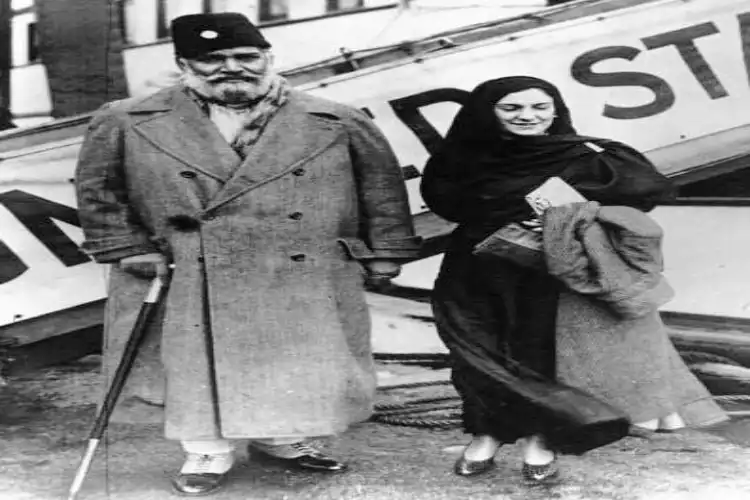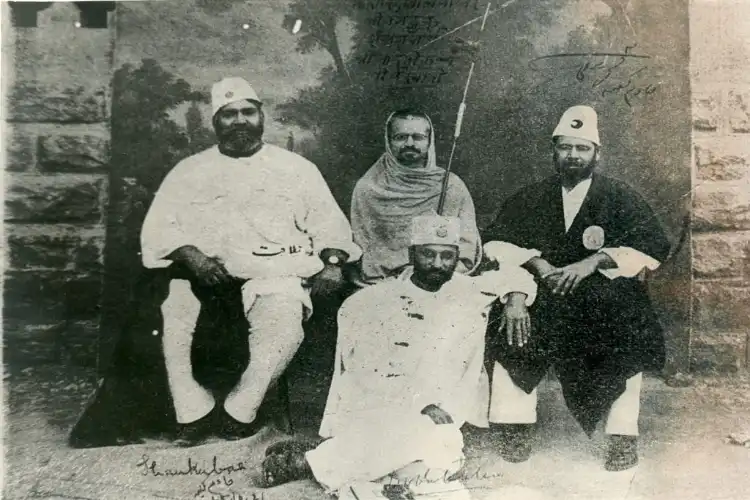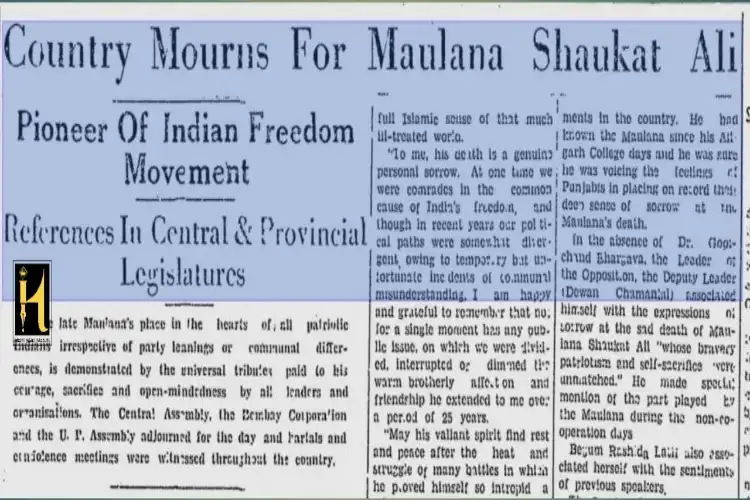
 Saquib Salim
Saquib Salim
“I am a subject of God and a free citizen of India. I do not want the King, nor this Court nor the Army. Even if I am prosecuted to death I shall be happy.” Maulana Shaukat Ali said this to a British judge at Karachi in September 1921. He was charged along with Maulana Mohammad Ali, Maulvi Hussain Ahmad, Dr. Saifuddin Kitchlew, Pir Ghulam Mujadid, Maulvi Nisar Ahmad, and Jagadguru Shankaracharya of Shri Sharada Peeth, with instigating the Indian soldiers of the British army against England. The accused, under the banner of the Central Khilafat Committee (CKC), had publicized a fatwa ruling that serving the British army was haram (unlawful/sin). Shaukat presented their case. His statement holds the clue to political thought, commitment to Indian nationalism, adherence to religion, and commitment to Hindu-Muslim unity.
Maulana Shaukat Ali, whose death anniversary falls on 26 november (he died in 1938), did not attend a madrassa as the prefix, Maulana, to his name may suggest. He studied at Mohammedan Anglo-Oriental (MAO) College, Aligarh (now, Aligarh Muslim University), where they had European teachers. In his mannerism and lifestyle, Shaukat was an English educated ‘Brown Sahib’ of the early 20th century, who captained the College cricket team, conversed in English, remained clean-shaven, and joined the British government as an officer. The crisis of the Balkan Wars, the First World War, the abolition of the caliphate, and the Jalianwala Bagh massacre awakened a nationalist in him and he became a prominent leader of Khilafat and Non-Cooperation movements led by Mahatma Gandhi.
When he was arrested by the police for waging a war against the empire in 1921 and produced in front of the magistrate, instead of presenting his defense, Shaukat made speeches. The Judge tried to stop him by saying he was not there to hear Shaukat’s lectures. Shaukat replied, “Then you can send me to the gallows; I have delivered hundreds of speeches and care not to deliver any to you.”
Shaukat declared, “I am a subject of God and a free citizen of India. I do not want the King, nor this Court nor the Army. Even if I am prosecuted to death I shall be happy.”

Maulana Shaukat Ali with Shankracharya and Kitchlew
The speech started with a special mention of Hindu-Muslim unity. The English, he said, should not think that India was a house of divided people. In every city, across the country, Hindus were part of Khilafat committees. At places where Muslims were less in number, Hindus had established these committees with all Hindu office bearers. He specifically refers to Shankaracharya by saying, “Shri Sankaracharya came to give his Hindu ecclesiastical support and sympathy for the Khilafat cause.” Every Indian, be it a Hindu or a Muslim, a man or a woman, knew by heart that Hindus and Muslims were combined people, he claimed.
Shaukat told the judge that he would fight the British until it stops its colonization and provides justice to the martyrs of Jallianwala Bagh. Claiming Swaraj (self-rule) to be his goal, Shaukat told the court that he counted himself “as an enemy of England.” He said, “I hate everybody who's an enemy of my God, who is an enemy of my faith and my country and all that lies in my power I shall do in getting my rights back.” He went on to say that till the British government “does not give us all that lies in my power I will do, and God willing we will uproot you.”
A Muslim man of the early 20th century, Shaukat, held pro-women views as well. His mother and sister-in-law led the Khilafat Movement. He told the court that not only men, women of India had also jumped in the national struggle against the foreign rule. These women had thrown their veils away and were ready to take up the responsibility. Shaukat said what if he, and other men, were imprisoned, “our ladies have thrown off their veils, my mother will go to them, my brothers’ wife will go to them, my daughters will go to them, our women will go to them and give them the message of God—even if we are punished they will do it. How can you stop that?”

A Muslim man of the early 20th century, Shaukat, held pro-women views as well. His mother and sister-in-law led the Khilafat Movement. He told the court that not only men, women of India had also jumped in the national struggle against the foreign rule. These women had thrown their veils away and were ready to take up the responsibility. Shaukat said what if he, and other men, were imprisoned, “our ladies have thrown off their veils, my mother will go to them, my brothers’ wife will go to them, my daughters will go to them, our women will go to them and give them the message of God—even if we are punished they will do it. How can you stop that?”
This Shaukat believed that Hindus and Muslims are a nation; women are equal partners, and for attaining freedom for the country one could go to any extent. In his idea of patriotism, loyalty and love towards the nation were essential. He told the court, “my feeling is this that India is my country - it is the country of everyone - Hindus, Muslims, Sikhs, Jains, Christians, and Jews - whosoever has made it his home — and even of every Englishman or woman who has made it his or her home and is ready to serve and love my country and I hope nobody will be tormented here — when I have my Swaraj, on account of his conscience. Whosoever is true to India — Whosoever will serve it, he will find his place here and the laws of the country will protect him.” This is Shaukat’s guiding principle and every other freedom fighter’s too. India belongs to every religion, race, caste, and gender, and only love towards this nation defines their nationality.
Shaukat Ali ended his speech with an announcement: “I have now concluded that this Government is a mockery and a scandal. Damn this Court, damn this Government, damn this prosecution and damn this whole show.”
This speech sums up his ideas of nationalism, religion, sovereignty, justice, and freedom. It serves as a guiding principle, teaches us to stand courageously and unapologetically in front of a tyrant, and enlightens us towards the unity India always had.
(Saquib Salim is a Historian and a Writer)
